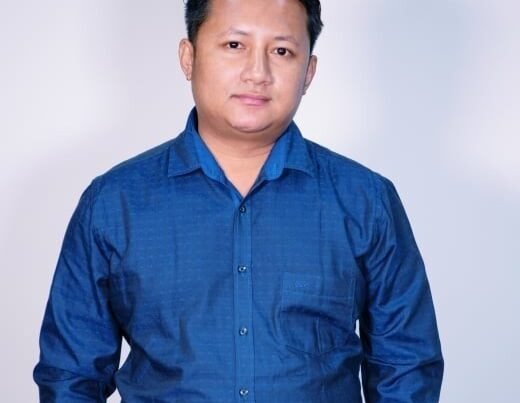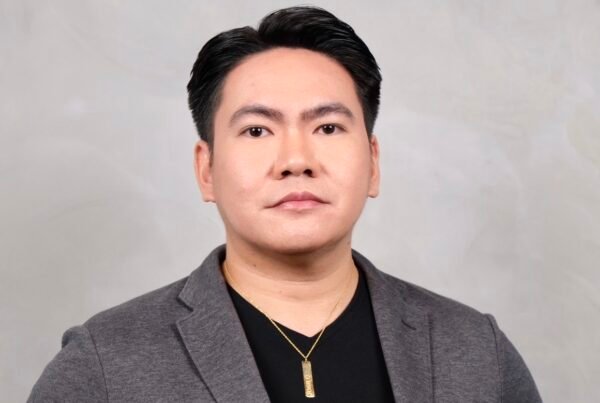With over two decades of experience in information security and payments, Mikko Laaksonen’s career journey is a testament to his dedication to advancing cybersecurity and resilient payment solutions. Currently leading information security at Thunes in Singapore, Mikko’s career has spanned continents, regulatory landscapes, and the rapid technological evolution that reshapes finance. His commitment to secure, efficient digital payments and innovative cybersecurity approaches has made him a respected figure in the industry, particularly in high-stakes markets where trust and security are paramount.
Tell us about your background and journey into cybersecurity and payments.
“My path into cybersecurity was very organic,” Mikko begins, reflecting on his early days in software engineering. Studying computer software engineering at Metropolia University of Applied Sciences in Finland gave him a strong technical foundation. But his career took an interesting turn when he started working on cryptographic identification mechanisms and secure software solutions. “I realized early on how essential it was to protect information systems, especially in financial services, where the stakes are incredibly high.”
After gaining experience in various technical roles, Mikko moved into payment security, a field where he saw the potential to make a significant impact. Working in Finland with one of the region’s top banks, he gained deep insights into PCI-DSS compliance, which focuses on protecting cardholder data. “In a way, I found my purpose in payments,” he shares. “Payments aren’t just transactions; they’re about building trust. And in today’s digital world, that trust hinges on how well we protect data.”
This passion for security led Mikko to Singapore, where he’s continued to build secure payment solutions at Thunes, a global B2B payment network. Today, his role involves not only securing transactions across borders but also navigating the complex regulatory and technological landscape that comes with it.
What is unique about working in cybersecurity within the payments industry?
“Payments are unique because they require both speed and security,” Mikko explains. “Every transaction needs to be instantaneous, yet absolutely safe.” In his role at Thunes, Mikko leads initiatives to secure a payment network that spans over 80 currencies and reaches 132 countries. The scope of his work requires a mix of technical acumen, regulatory knowledge, and practical problem-solving.
The payments industry, he notes, is especially vulnerable to cyber threats due to its dependence on sensitive financial data. “A major challenge in payments is the constant evolution of cyber threats. Attackers are becoming more sophisticated, which means our defenses need to be proactive rather than reactive.”
Mikko’s approach to cybersecurity in payments focuses on three pillars: data protection, regulatory compliance, and user trust. “Security is no longer just a back-office function,” he adds. “In payments, it’s a part of the user experience. Customers need to feel safe when they make a transaction, whether they’re using a card in Helsinki or a mobile wallet in Nairobi.”
How do you approach balancing innovation with security, especially when dealing with technologies like AI and blockchain?
For Mikko, balancing innovation with security is one of the most exciting aspects of his role. “We’re constantly looking for ways to make payments faster and more accessible, but we can’t sacrifice security to get there.” Thunes, for instance, is exploring the potential of blockchain for secure cross-border payments, while also investing in AI to detect and prevent fraud in real-time.
“One of the ways we approach this balance is by building security into our innovation process,” he explains. “When we develop new products or services, we start with a security-first mindset.” By involving cybersecurity experts in the early stages of product design, Mikko’s team can anticipate potential risks and mitigate them before they become issues.
He also acknowledges the challenge of working in an environment where regulations around emerging technologies like AI and blockchain are still catching up. “In these cases, we set our own high standards, often going beyond current regulations to ensure we’re protecting our customers and our brand.” This approach has helped Thunes establish itself as a trustworthy player in the global payments space.
Can you share an experience that shaped your perspective on the importance of cybersecurity?
Mikko recalls a pivotal experience during his time working with Responsible Cyber, where he co-founded and developed a third-party risk management solution called IMMUNE X-TPRM. The solution was designed to help companies identify and manage cybersecurity risks within their digital supply chains.
“One of our clients experienced a breach that stemmed from a third-party vulnerability,” Mikko shares. “It was a stark reminder that cybersecurity isn’t just about protecting ourselves; it’s about the entire ecosystem we operate in.” This incident highlighted the importance of a holistic approach to cybersecurity, especially as companies rely more on third-party services and cloud-based solutions.
Seeing firsthand the ripple effects of a security lapse on a client’s reputation and operations was eye-opening for Mikko. “It solidified my belief that cybersecurity is a shared responsibility,” he says. “At Thunes, we take that lesson to heart. We work closely with our partners and vendors to ensure our security standards are met across the board.”
What has been the biggest lesson you’ve learned about leadership in cybersecurity?
“As a leader, I’ve learned that communication is just as important as technical skills,” Mikko states. In cybersecurity, explaining complex technical issues in a way that non-technical stakeholders can understand is crucial. “One of the biggest challenges in my role is getting buy-in for security initiatives that might seem expensive or time-consuming. But when people understand the risks and the stakes, they’re much more willing to support those efforts.”
Mikko emphasizes the importance of creating a security-aware culture within the organization. “Cybersecurity isn’t just an IT function; it’s part of everyone’s job. Whether it’s the finance team or customer support, everyone has a role to play in keeping our data and systems safe.” Through regular training, open communication, and an emphasis on security awareness, Mikko has built a team that understands and values cybersecurity as a core business function.
How do you maintain resilience and motivation in such a demanding and constantly evolving field?
Cybersecurity can be a high-stress field, especially with the constant pressure to stay ahead of emerging threats. For Mikko, resilience comes from his passion for the work and a supportive team environment. “I’m fortunate to work with people who share the same commitment to security and integrity. Knowing that we’re all in this together makes the workload manageable, even during challenging times.”
He also finds motivation in continuous learning. “Cybersecurity is always evolving, which means there’s always something new to learn. That keeps the work interesting and keeps me motivated.” Mikko stays updated on the latest industry trends through professional networks, conferences, and research.
Another strategy he uses is celebrating the small wins. “In cybersecurity, the big victories are often invisible because they’re about preventing incidents. So, we make it a point to acknowledge the smaller achievements along the way, whether it’s implementing a new protocol or passing an audit.”
Final Thoughts
Mikko Laaksonen’s journey in cybersecurity and payments reveals a unique blend of technical expertise, strategic thinking, and a deep commitment to building trust in a digital world. As he continues to lead cybersecurity efforts at Thunes and contribute to advancements in payment security, he remains focused on protecting what he believes to be the backbone of modern finance—trust.
“At the end of the day, payments are about connections,” he reflects. “People rely on us to keep their transactions safe, whether they’re sending money to family abroad or paying for a coffee. That trust is something I take very seriously, and it’s what drives me every day.”






